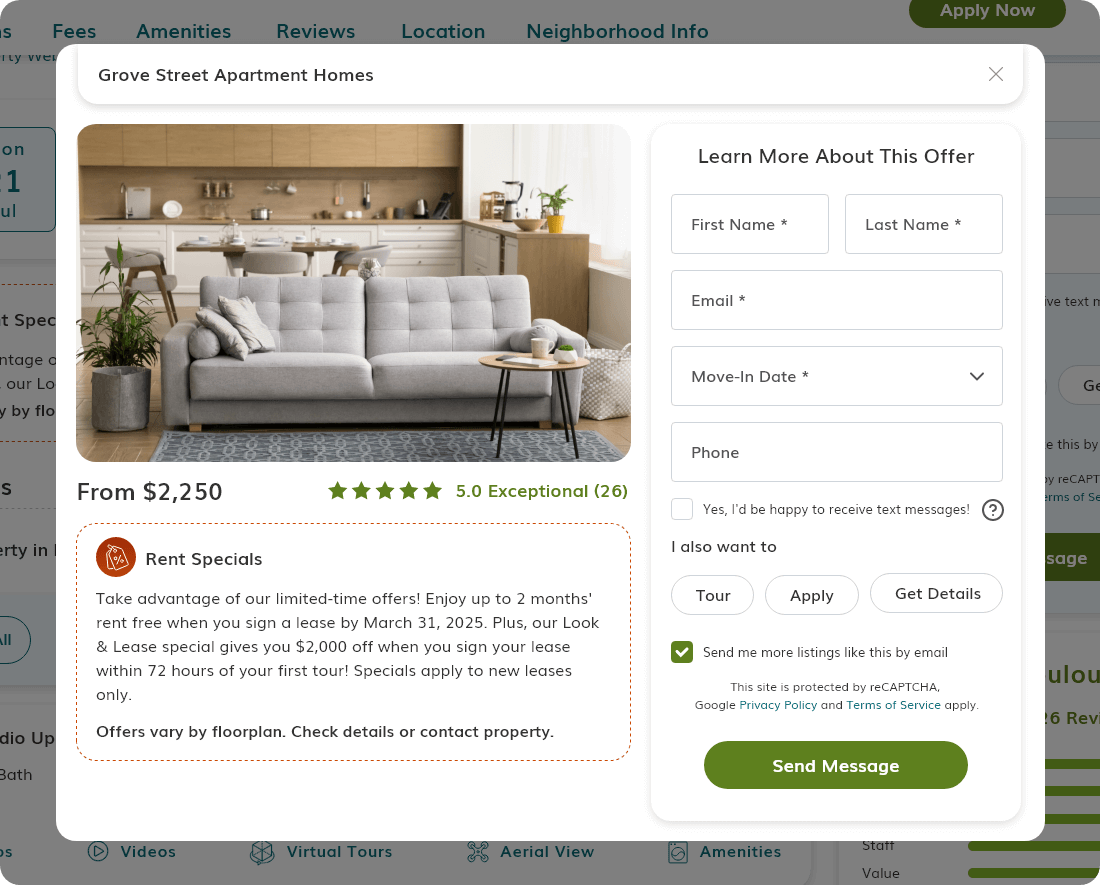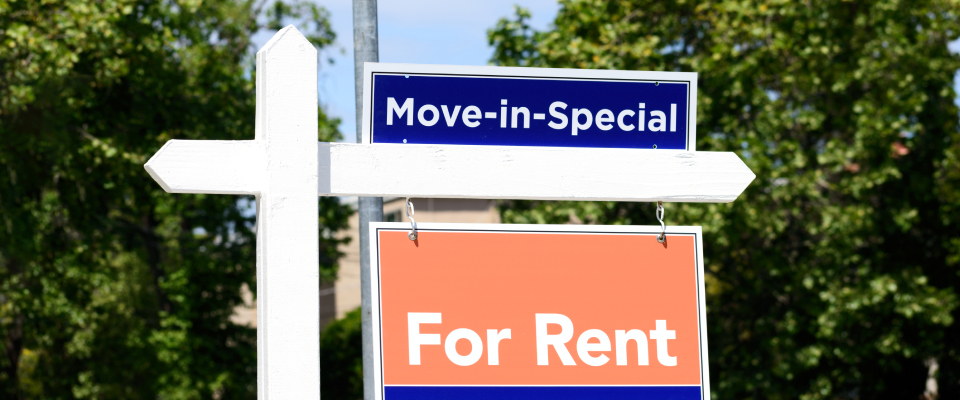Rent concessions made easy: How to score great deals on apartments
Share this article:
Finding a rental apartment that checks all your boxes — price, location, amenities, and overall vibe — can feel like hitting the jackpot in ultra-competitive cities like New York City, Chicago, Miami or Milwaukee. With so many renters chasing a limited number of listings, the best apartments don’t stay vacant long.
Acting fast is crucial when you finally spot a place that feels right. Having your rental application, proof of income, references, and even your deposit ready can make all the difference between landing your dream apartment and watching another renter swoop in first.
Whether it’s a free month of rent, a reduced security deposit, or waived parking fees, these apartment concessions can make a real difference in your budget. Knowing what and when to ask is key.
What are rent concessions and why do they matter?
Before you start negotiating, it’s important to understand what rent concessions are. In simple terms, they’re lease incentives or rental discounts offered by landlords or property managers to make a unit more attractive to renters. Common examples include:
- A free month of rent
- Reduced or waived application fees
- Free parking for a few months
- Lower move-in costs
- Flexible lease terms
These typical rent concessions are designed to get tenants to sign faster, especially when a unit has been sitting vacant longer than expected. In slower seasons or competitive rental markets where many new buildings are opening, landlords might offer rent specials to keep occupancy high. Knowing this gives you leverage when you’re ready to sign your lease.
Here are some practical tips to help you negotiate rent concessions like a pro:
1. Do your research before negotiating
Knowledge is power when it comes to negotiating rent concessions. Before making your move, compare listings for apartments you like in the same neighborhood. See if other buildings are offering lease incentives or rental discounts like one month free or lower upfront costs.

Apartment websites like RentCafe.com often highlight rent specials, and even a quick conversation with leasing agents can reveal what’s typical in your area.
Armed with that information, you’ll be able to make a stronger case. If similar apartments nearby are offering a concession and yours isn’t, mention it. Landlords want to stay competitive, and a little data can go a long way.
2. Time your negotiation strategically
Timing matters just as much as location. Most rental markets heat up in the summer, when demand is at its highest. By contrast, fall and winter are slower, and that’s when landlords are more willing to offer apartment concessions to fill vacant units.
If you’re renting in Chicago or Milwaukee, where winters are cold and slow for leasing, use that seasonal dip to your advantage. Even in year-round competitive rental markets, you might find that post-summer months are a bit less intense. That’s the sweet spot for negotiating rent concessions before signing.
3. Ask for the right type of concession
Concessions come in many forms. Sometimes, you might not get a lower monthly rent, but you could get something else valuable — like waived pet fees or a reduced deposit. Here are a few typical rent concessions worth asking about:
- Free rent period: One or two weeks (or even a month) rent-free is one of the most common rent specials.
- Reduced move-in costs: Ask if the landlord can lower or split the security deposit.
- Free amenities: Parking, storage, gym access or other rental amenities could be negotiable.
- Flexible lease terms: Shorter or longer lease options might appeal to both sides.
The key is to focus on what helps your budget the most. Even a small rental discount adds up over the course of a year.
4. Stay polite but persistent
Negotiation is about communication, not confrontation. A calm, professional approach works best. If the landlord says no to a rent concession at first, thank them and let them know you’re still interested.
Sometimes, if the unit doesn’t lease right away, they may come back with an offer. You can also follow up after a week or two, especially if you’re flexible on move-in dates. Politeness and patience often open more doors than pushing too hard.
5. Put everything in writing
Once you’ve agreed on any rent concessions, make sure they’re written into your lease agreement. Whether it’s a free month, reduced fees, or other rent concessions, everything should be clearly spelled out. This protects you and ensures there are no misunderstandings later.

Verbal agreements can easily be forgotten or misinterpreted, especially if building management changes hands. Having the rent concessions documented guarantees that you get the deal you negotiated.
6. Don’t overlook smaller perks
Even if a landlord can’t offer a big rent special, they might be open to smaller perks that make your life easier. These could include:
- A reserved parking spot
- Early move-in flexibility
- Free maintenance or cleaning for the first month
- A discount on renewing your lease later
Every bit helps. Small rental discounts or benefits can add up to meaningful savings over time.

Even in a tight rental market, savvy renters have options. Acting quickly when you find the right place (and knowing how to ask for rent concessions) can save you money and help you secure a lease you’ll feel good about. The key is to be informed, confident and respectful throughout the process.
Now’s the perfect time to sharpen your negotiation skills. With the right approach, you can find your next home and score a great deal while you’re at it.
Share this article:
Veronica Grecu is a senior creative writer and research analyst for RentCafe. With more than 14 years of experience in the real estate industry, she covers a variety of topics in the apartment market, including rental competitiveness, new construction and other industry trends. Her work has been featured in top publications like The New York Times, The Washington Post, The Wall Street Journal, The Philadelphia Inquirer, The Miami Herald, CNN, CNBC, and more. Prior to RentCafe, Veronica was involved in producing real estate content for Multi-Housing News, Commercial Property Executive and Yardi Matrix. She holds a B.A. in Applied Modern Languages and an M.A. in Advertising and PR.
The Ready Renter has your back
Tips, news, and research curated for renters, straight to your inbox.




Related posts
Subscribe to
The Ready Renter newsletter






